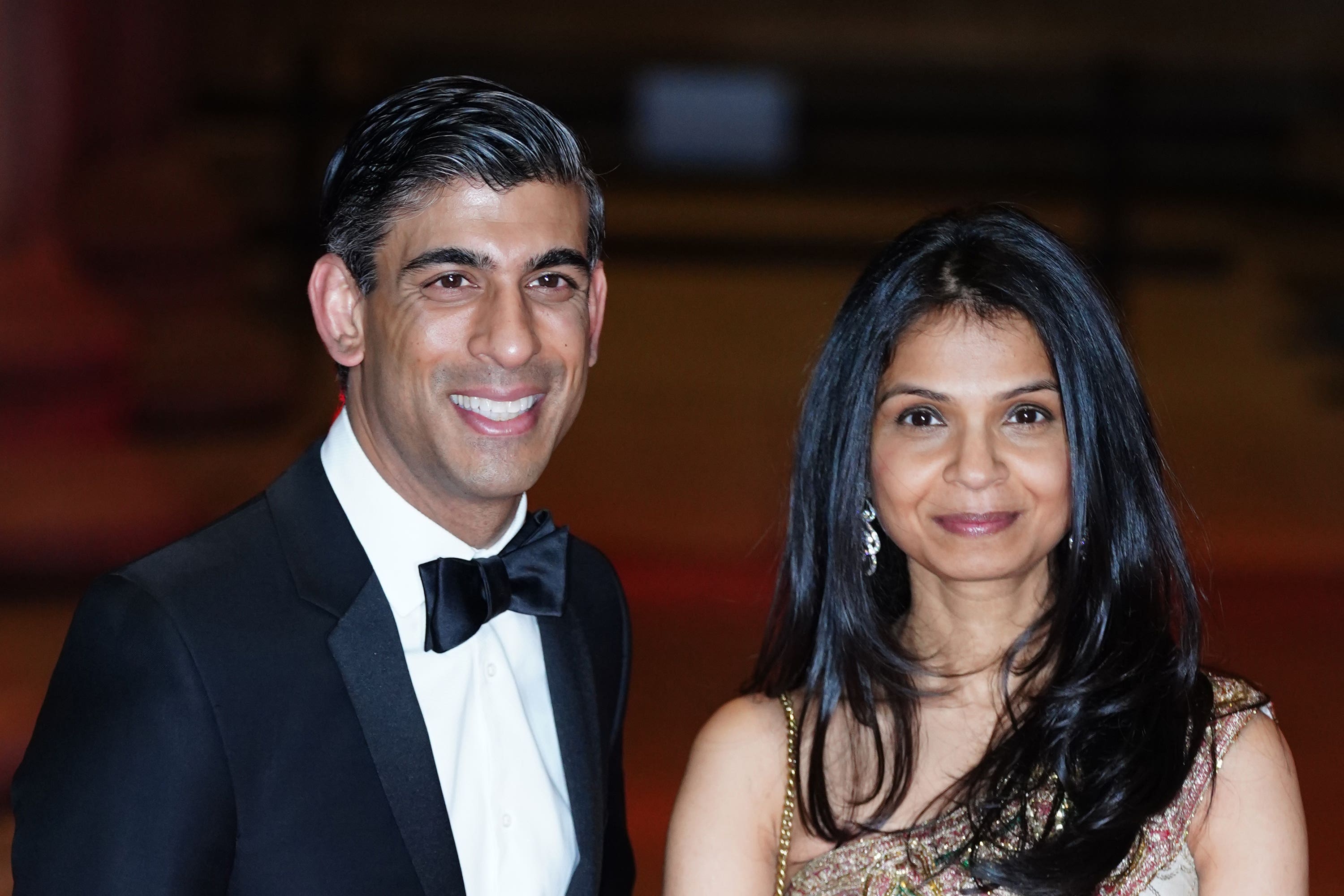Sunak’s slip-ups are a question of competence rather than corruption – but that’s still a problem
The PM should have realised that it could look bad to have a different reporting system for ministers and MPs, writes John Rentoul


The inquiry by Daniel Greenberg, the parliamentary commissioner for standards, into Rishi Sunak’s declaration of interests casts more doubt on the prime minister’s competence than his integrity.
His wife’s interest in a childcare company was public knowledge, recorded at Companies House, but not in the Register of Members’ Financial Interests, where on a plain reading of the rules it should also have been declared. Sunak’s wife, Akshata Murty, owns a stake in Koru Kids, a company that stands to benefit from the new subsidy for childcare that was announced in the Budget last month.
That looks like a potential conflict of interest, but the prime minister argues that he had declared the interest through a third channel, to the independent adviser on ministerial interests – and his officials insist that this was all that he was required to do under the rules.
The problem for Sunak is that those rules are in dispute. The prime minister’s office insists that because ministers declare to the independent adviser, they do not “double declare” to parliament. The Register of Members’ Financial Interests is run by the House of Commons, and supervised by Greenberg, not the government.
But the Commons has never accepted the government’s version of the rules. Sunak’s public relations problem is part of a long-running dispute between executive and legislature about who has primary responsibility for declarations for ministers.
That means that Sunak and his advisers should have foreseen trouble – especially as ministers’ interests have not been published for a year now, partly because Boris Johnson managed to go so long without an independent adviser on ministerial interests.
Sunak, who said his new government would be “characterised by integrity” when he took office, should have realised that it could look bad to have a different reporting system for the interests of ministers and for those of other MPs. Not only have ministerial interests not been published, while MPs’ interests are published at fortnightly intervals, but the prime minister’s spokespeople have not been specific about when his wife’s interest in Koru Kids was declared, in private, to the Cabinet Office.
It ought not to matter very much, given that the information was already in the public domain, and that nobody seriously thinks that the government’s childcare policy was designed to make Murty richer than she already is, but the appearance of less than total candour is unfortunate.
Sunak’s wealth is less of a negative for him than I thought it might be – indeed, voters in focus groups often say he’s so rich he cannot be bought. And as Prof Sir John Curtice, the elections analyst, said at an Independent event on Monday evening, the fuss about the prime minister’s family interests is unlikely to be damaging to him because the childcare policy is broadly popular.
The trouble with this fuss over process, though, is that it could undermine Sunak’s one big selling point: competence. He or his advisers should have foreseen the potential for trouble in the dispute over how ministerial interests should be declared. Especially as one of the additional burdens of being rich is that he and his wife have more interests that might be thought to give rise to a potential conflict. One government source said she is an “angel investor” who has shares in “lots of companies”, as if this meant Sunak couldn’t possibly be expected to declare them all.
On the contrary, if Sunak had really taken his pledge of “integrity” seriously, he should have found a way to declare everything himself, so that he could not have been accused of hiding things – in stark contrast to his predecessor-but-one, who seemed to think it was nobody’s business that a distant cousin had underwritten £800,000 of credit, or that this deal had been facilitated by Richard Sharp just before Boris Johnson nominated Sharp as chair of the BBC.
We found out about that only because the information was leaked. At least Sunak’s potential conflict had already been made public.



Join our commenting forum
Join thought-provoking conversations, follow other Independent readers and see their replies
Comments